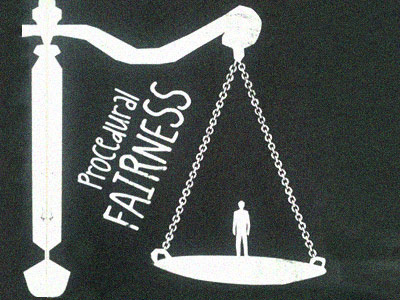
Procedural fairness may in fact be regarded as the "rights" of the worker in respect of the actual procedure to be followed during the process of discipline or dismissal.
This is when the proper procedures have been followed prior, during, and after disciplinary action. This would include issues such as:
- Was adequate notice given?
- Was the offender informed of the complaints against him/her?
- Was the offender allowed representation and an interpreter?
- Was the evidence led in the presence of the offender?
- Was an opportunity given for cross-examination?
- Was the offender given the opportunity to state his case?
- Was the offender given the opportunity to call witnesses?
- Was the outcome based on the evidence provided only?
- Was the offender given an opportunity to appeal?
- Was the offender informed of his right to refer the matter to the CCMA within 30 days?
Even if there are very good substantive reasons for a dismissal, an employer must follow a fair procedure before dismissing an employee. This requires the employer to conduct an investigation into the alleged misconduct. This need not be a formal enquiry, but these requirements should be met:
- The employer must inform the employee of the allegations in a manner that the employee can understand.
- The employee should be allowed reasonable time to prepare a response to the allegations.
- The employee must be given an opportunity to state his or her case.
- The employee has the right to be assisted by a shop steward or other employee.
- Normally, the employer should conduct an investigation to determine whether there are grounds for dismissal. This does not need to be a formal enquiry. The employer should notify the employee of the allegations using a form of language that the employee can reasonably understand. The employee should be allowed the opportunity to state a case in response to the allegations. The employee should be entitled to a reasonable time to prepare the response and to the assistance of a trade union, representative or fellow employee. After the enquiry, the employer should communicate the decision taken, and preferably furnish the employee with written notification of the decision.
- Discipline against a trade union representative or an employee who is an office bearer or official of a trade union should not be instituted without first informing and consulting the trade union.
- If the employee is dismissed, the employee should be given the reason for dismissal and reminded of any rights to refer the matter to the council with jurisdiction or to the Commission or to any dispute resolution procedures established in terms of a collective agreement.
- In exceptional circumstances, if the employer cannot reasonably be expected to comply with these guidelines, the employer may dispense with pre-dismissal procedures.
After the enquiry, the employer should inform the employee of the decision, preferably in writing. If the employer dismisses the employee, the employer must give reasons and inform the employee of his or her right to refer the dispute for resolution to a council or the CCMA.
If the employee wishes to challenge the fairness of the dismissal by using a council or the CCMA, the matter must be referred to the correct body within 30 days of the dismissal.
Employers should keep records of disciplinary actions for each employee, stating the nature of the misconduct, the disciplinary action and the reasons for the action.
The Code of Good Practice: Dismissal, is not a codification of the law, but a guide to good practise. It is also not a checklist of obligatory formal steps. This simply means that in any event the principles of natural justice (see below) are required.
However, complying with only some of those guidelines would not necessarily render a dismissal procedural unfair. Caution should be taken not to interpret in a too narrow application.